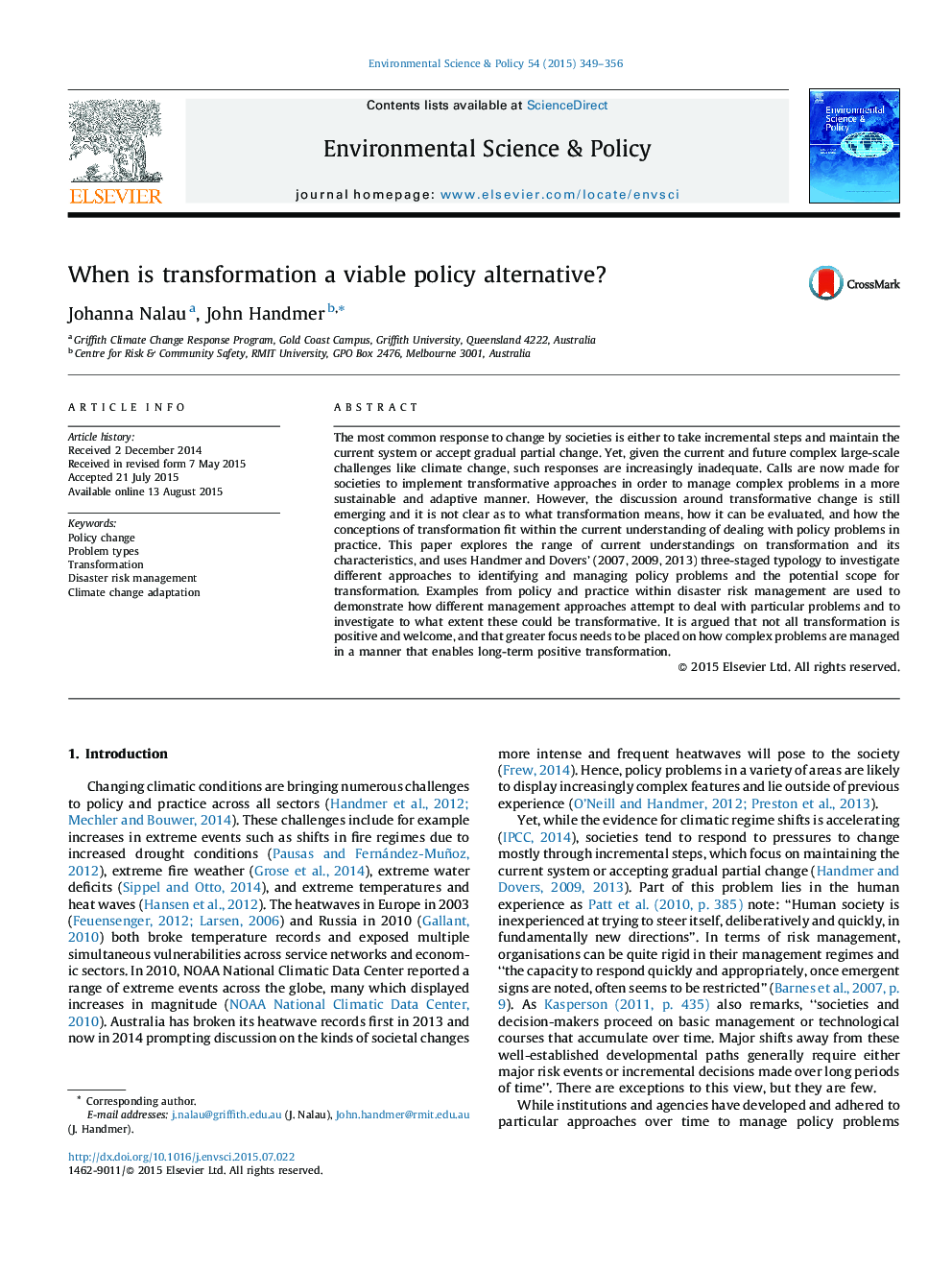| Article ID | Journal | Published Year | Pages | File Type |
|---|---|---|---|---|
| 7467351 | Environmental Science & Policy | 2015 | 8 Pages |
Abstract
The most common response to change by societies is either to take incremental steps and maintain the current system or accept gradual partial change. Yet, given the current and future complex large-scale challenges like climate change, such responses are increasingly inadequate. Calls are now made for societies to implement transformative approaches in order to manage complex problems in a more sustainable and adaptive manner. However, the discussion around transformative change is still emerging and it is not clear as to what transformation means, how it can be evaluated, and how the conceptions of transformation fit within the current understanding of dealing with policy problems in practice. This paper explores the range of current understandings on transformation and its characteristics, and uses Handmer and Dovers' (2007, 2009, 2013) three-staged typology to investigate different approaches to identifying and managing policy problems and the potential scope for transformation. Examples from policy and practice within disaster risk management are used to demonstrate how different management approaches attempt to deal with particular problems and to investigate to what extent these could be transformative. It is argued that not all transformation is positive and welcome, and that greater focus needs to be placed on how complex problems are managed in a manner that enables long-term positive transformation.
Related Topics
Physical Sciences and Engineering
Energy
Renewable Energy, Sustainability and the Environment
Authors
Johanna Nalau, John Handmer,
